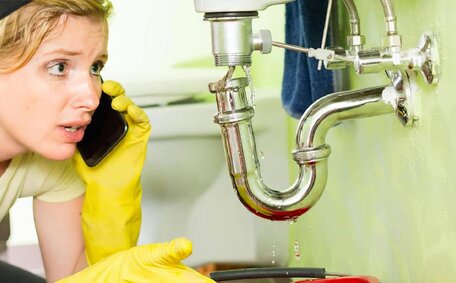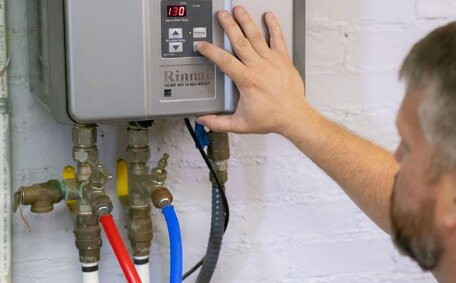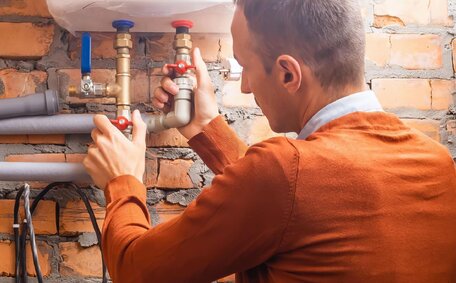Common Household Items that Cause Drain Clogs
Household items such as grease and hair can commonly lead to clogged drains and significant blockages:
- Grease and oils - Washing fats, oils, and grease down the drain can cause blockages over time.
- Hair - Hair buildup from your body can clog drains, especially in showers, as it entangles with debris and impedes water flow.
- Food particles - Tiny food scraps accumulating in your drain or garbage disposal can create persistent blockages.
- Tree roots - Tree roots can infiltrate your pipes through tiny cracks, leading to persistent blockages.
- Personal hygiene products - Sanitary items such as wet wipes, dental floss, and cotton buds can lead to clogs when flushed down the drain.
- Foreign objects - Coins, jewellery, toys, or other small objects can cause blockages if they get into the pipes and accumulate, leading to clogged drains.
Taking preventive measures such as using sink strainers, reducing oil and grease disposal, and catching hair can significantly ease the burden of recurrent drain problems.
Adopting effective strategies and seeking professional assistance for clogs caused by such materials is crucial to prevent property damage. These household items can block drains, leading to the main causes of restrictions in water circulation within your plumbing system and potentially more severe clogs over time.
DIY Methods to Initially Unclog Drains
Should you encounter unexpected blocked drains, several DIY methods are at your disposal to tackle them before professional assistance is required:
- Boiling Water - Pouring boiling water down your drain can dissolve substances such as hair, soap, and grease, which often cause blockages. After boiling water, an effervescent mixture of baking soda and vinegar can help dislodge residual blockages – use equal parts, wait five minutes, and then rinse thoroughly with hot water.
- Using a Plunger - Position the plunger over the drain to create a vacuum and vigorously pump it 10-15 times to help dislodge blockages.
- Drain Auger - Employ a manual or motorised drain auger to access and remove deeper obstructions, such as accumulated hair and other debris.
- Baking Soda and Vinegar - Combine 1/2 cup baking soda with 1 cup vinegar and pour down the drain. Wait 5-10 minutes, then flush with hot water.
While these methods can resolve minor issues, stubborn clogs might necessitate professional intervention to restore proper drainage. If blocked drains persist, seek professional help promptly to prevent damage to your plumbing system.
When Professional Drain Services Become Necessary
If DIY unclogging attempts fail, it’s essential to consult a drain specialist for persistent blockages. Signs that professional help is necessary can include issues with your drain pipes such as:
- Ongoing plumbing issues like blocked drains persisting even after using boiling water, plungers, and drain snakes
- Potent odours emanating from your sewer line or domestic installations
- Gurgling sounds from pipes when water drains
- Water backing up in drains can occur and lead to flooding
- Low water pressure
- Sewage leaks
Ignoring blocked drains risks cracked pipes and unsanitary conditions, thereby damaging your plumbing. Early intervention by calling a plumber can identify issues before they escalate and require expensive repairs.
Local specialists at Ashfield Plumbing offer comprehensive drain inspections, advanced drain cleaning, pipe relining, and additional services. Offering rapid responses 7 days week, contact 1300 349 338 or email [email protected] for swift, dependable aid can also address any drain concerns.
Advanced Methods Pros Use to Clear Difficult Clogs
High-Pressure Hydrojetting
Hydrojetting, with its high-pressure water stream, is utilised by professionals to effectively clear persistent drain clogs. This process involves sending a concentrated, high-pressure stream of down water through the drain line to scour the pipe walls and dislodge built-up deposits.
Mechanical Drain Snakes
For deeper drain blockages within your drainage system, an expert plumber will utilise an industrial-grade, mechanical drain snake, also known as an auger. This spiralling metal cable reaches deep to remove obstructions such as hair and grease, ensuring a free-flowing drainage line.
CCTV Drain Inspections
Numerous plumbing companies utilise advanced drain camera technology to conduct a meticulous cctv drain inspection. This allows an accurate diagnosis of any underlying issues to ensure the most effective solution.
At Ashfield Plumbing, we have an arsenal of commercial-grade tools for tackling difficult drain clogs others can’t. With experts can provide technicians available 24/7, call 1300 349 338 for emergency assistance.
Preventing Future Drain Clogs
Use Drain Strainers and Screens
Installing drain covers or strainers prevents hair, food remnants, and other debris from entering your pipes. Make sure to perform regular cleansing of strainers, which can do essential removal of the buildup before it can go into your drains, facilitating a clearer drainage flow. Fine mesh screens are what can do the best job at catching tiny particles before going into drain.
Limit Grease and Oil Disposal
Allowing grease and fat to go down sink is a prime culprit for clogs. Collect surplus grease in containers for disposal instead of letting it accumulate in kitchen and bathroom sinks. Wipe greasy cookware with paper towels before washing them in the kitchen sink.
Be Cautious with Toilet Paper
Avoid flushing too much toilet paper down toilet at once, which can help prevent blocked drains from escalating. Opt for softer, rapid-dissolving brands. Avoid flushing paper towels and non-dissolvable items as they may cause obstructions.
Avoid Flushing Harmful Items
Avoid flushing items that are not meant to be disposed of via the toilet, as they can cause significant clogs. Items such as wet wipes, cotton buds, and dental floss are problematic once they are washed down and traverse beyond reach, often resulting in major obstructions.
Schedule Professional Maintenance
Regular drain inspections, hydrojetting, and professional cleaning can prevent accumulations from becoming common blockages. Such maintenance is essential in averting emergency drain issues in the future.
Adopting simple, consistent household routines like fitting drain screens, curbing grease disposal, and not flushing unsuitable items can take the edge off the risk of dealing with troublesome clogs going forward. Contact the drain specialists at Ashfield Plumbing on 1300 349 338 for all your drain maintenance needs.






